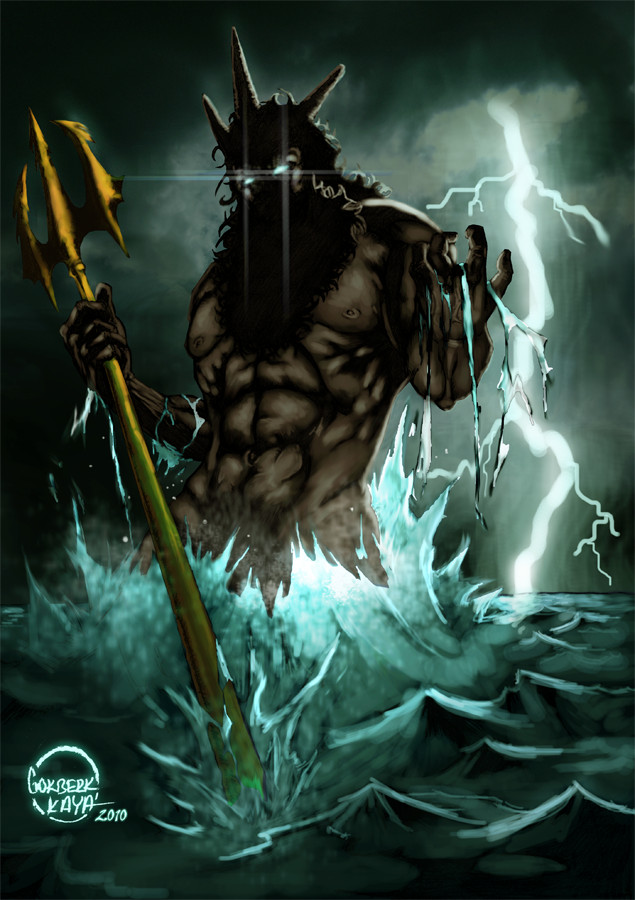
Theseus was happy to have two fathers, enjoying the lineage of each when it suited him. Poseidon was father of the hero Theseus, although the mortal Aegeus also claimed this distinction.

The people of Athens were careful, all the same, to honor Poseidon as well (as soon as his anger calmed down and he withdrew the flood of seawater with which he ravaged the land after his loss in the contest with Athena). Her paramount importance to the Athenians is seen in her magnificent temple, the Parthenon, which still crowns the Acropolis. The god demonstrated his power and benevolence by striking the Acropolis with his three-pronged spear, which caused a spring of salt water to emerge.Īthena, however, planted an olive tree, which was seen as a more useful favor. Poseidon vied with Athena to be patron deity of Athens. This led to a number of territorial disputes among the gods. In dividing heaven, the watery realm and the subterranean land of the dead, the Olympians agreed that the earth itself would be ruled jointly, with Zeus as king. Poseidon had married Nereus's daughter, the sea-nymph Amphitrite. Similarly, Nereus, the Old Man of the Sea, wasn't really considered on a par with Poseidon, who was known to drive his chariot through the waves in unquestioned dominance. Zeus was ruler of the sky, Hades had dominion of the Underworld and Poseidon was given all water, both fresh and salt.Īlthough there were various rivers personified as gods, these would have been technically under Poseidon's sway.

Although he was officially one of the supreme gods of Mount Olympus, he spent most of his time in his watery domain. POSEIDON (puh-SYE-dun or poh-SYE-dun Roman name Neptune) was the god of the sea, earthquakes and horses.


 0 kommentar(er)
0 kommentar(er)
